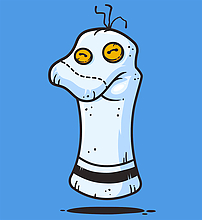LCCD, Stanford Team Recognized at WWW2017 for Study of Online “Sockpuppets”

A team of researchers from the University of Maryland's Laboratory for Cultural Computational Dynamics (LCCD) and Stanford University were recently recognized with a Best Paper Honorable Mention award at a leading conference on the Internet and its impact on society.
“An Army of Me: Sockpuppets in Online Discussion Communities” looks at the phenomena of users in online discussion communities that create multiple accounts, or “sockpuppets,” to argue that their viewpoint is correct.
Srijan Kumar, an LCCD researcher who graduates in May with a doctoral degree in computer science, was lead author on the paper, presented on April 6 at the 26th Annual World Wide Web Conference (WWW2017) in Perth, Australia.
Co-authors on the paper include V.S. Subrahmanian, a professor of computer science and LCCD director, and Jure Leskovec and Justin Cheng from Stanford.
The paper asserts sockpuppets are typically created to enable an individual to participate in controversial topics that include political, religious, racial and other issues.
The researchers conducted a comprehensive study of sockpuppetry across nine different online communities, including CNN, Major League Baseball (MLB), and IGN. In the study, they characterize how sockpuppets write, such as using more personal pronouns like “I” and “dumbing down” their posts by writing in short sentences, how similar a pair of sockpuppets controlled by the same puppetmaster are, and how sockpuppets vary in their deceptive behavior.
The research team also developed machine-learning classifiers to accurately detect pairs of sockpuppets. Using activity attributes (how the user posts), community attributes (how others respond to the user’s posts), and post attributes (how the user writes) of each user, the researchers were able to accurately identify sockpuppets from ordinary users approximately seven out of 10 times, and whether two accounts belong to the same person approximately nine out of 10 times.
LCCD is one of 16 centers and labs in the University of Maryland Institute for Advanced Computer Studies.
